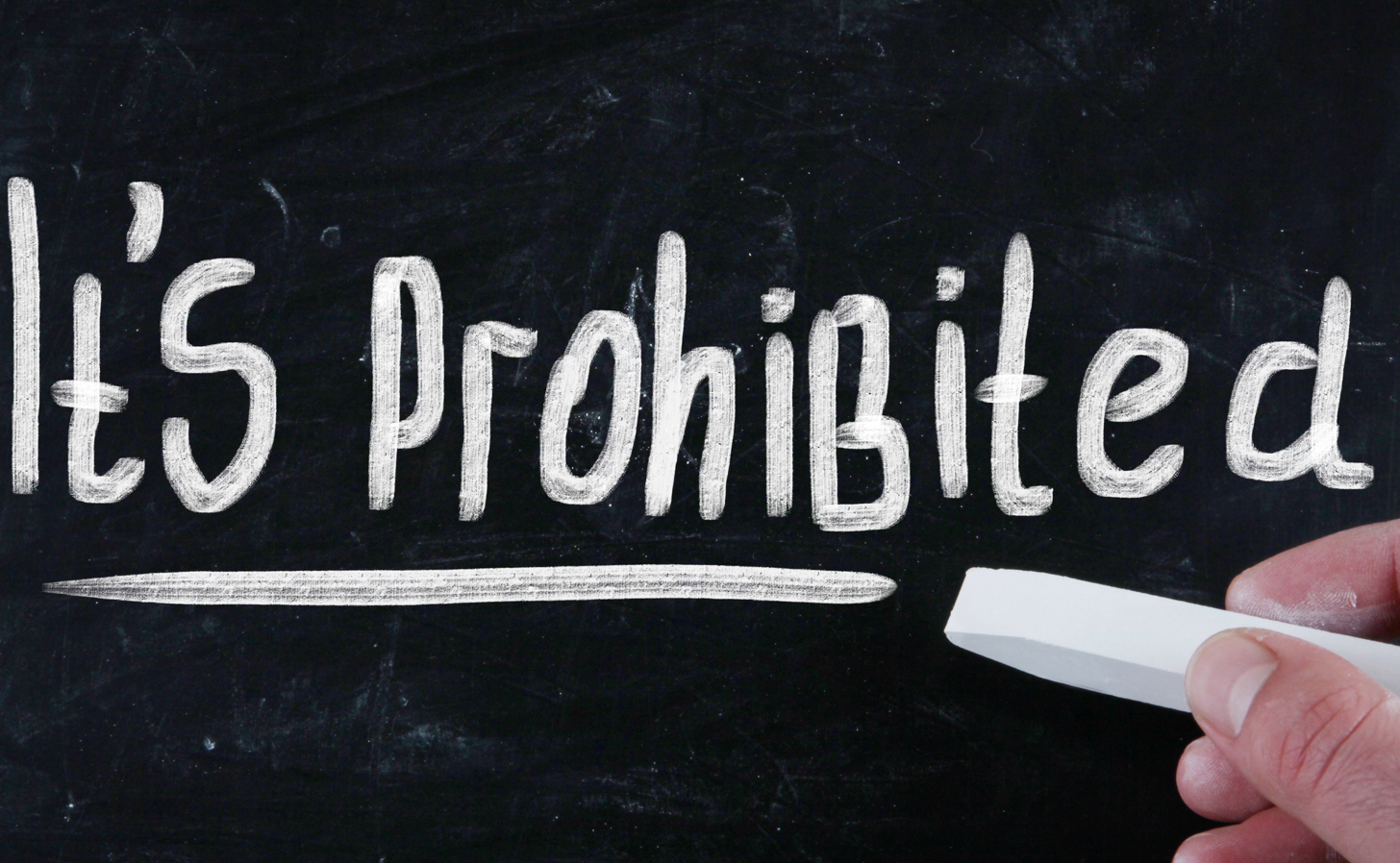
by John McCarthy Consulting Ltd. | Mar 7, 2022 | Blog, News
On Friday 4 March 2022 the Consultative Committee of Accountancy Bodies in Ireland (CCAB-I) issued updated guidance applicable to accountants in practice for immediate use.
The Guidance is a widely respected and hugely valuable document among accountants as it sets out the minimum criteria that must be adhered to in order to comply with the Criminal Justice (Money Laundering and Terrorist Financing) Acts 2010 to 2021 (‘the Act’) in the Republic of Ireland.
Key changes in the legislation are reflected in additional guidance in areas such as:
- Greater emphasis on identification of beneficial owners of businesses;
- Expanding the definition of tax adviser, letting agent and intermediaries at art auctions;
- The definition of a Politically Exposed Person (PEP) to include any individual performing a prescribed function;
- There is a specific list of enhanced due diligence measures that the designated person is required to apply when dealing with a customer established, or residing, in a High-risk third country;
- The new requirement in place since 23 April 2021 that prior to commencing a business relationship is established, reasonable steps must be taken to verify the beneficial ownership of corporate clients including confirming the beneficial ownership with the relevant Central Register. Where a Designated person identifies a ‘discrepancy’ (as defined) in the Act, i.e. where the entry is inconsistent or incorrect between its own records and those maintained by the Central Register, it must notify the relevant Registrar.
- There is a similar requirement to notify the relevant Registrar where there is evidence of ‘non-compliance’ (as defined) in the Act, i.e. where the register is blank, it must notify the relevant Registrar.
A copy of the guidance may be accessed here.
Specially tailored up to date AML Training that meets the requirements of the legislation is available on request, on Zoom, in person or as a hybrid event, with a free video recording supplied afterwards, for future viewing. Contact john@jmcc.ie for further details.
To ensure your letters of engagement and similar templates are up to date visit our site here where immediate downloads are available in Word format. A bulk discount is available for orders of five or more items if bought together.
For our latest Audit Quality Control Manual (October 2021) (implementing the latest Irish Audit & Accounting Supervisory Authority standards including ISQC1 on audit quality control) click here. View the Table of Contents here.
We also have an up to date Anti-Money Laundering Procedures Manual (September 2021) – View the Table of Contents click here.

by John McCarthy Consulting Ltd. | Feb 21, 2022 | Blog, News
Have you checked what companies are registered at your office address, lately? Well, maybe now is a good time!
Police sometimes describe the practice by which drug dealers take over someone’s home (often a vulnerable person) as a base for their activities as ‘cuckooing’. It now appears that this phenomenon has ‘come home to roost’ in some accountancy firms – at least in the UK.
According to a 2021 report in the SARS in Action magazine of the National Crimes Agency the new style of cuckoo uses an accountancy firm’s address as a registered office address without the knowledge or consent of the firm.
The most likely explanation for using the accountancy firm’s address is that it provides credibility which may be used to facilitate fraud. In many cases, the company will combine using the address with a Post Office redirection arrangement so the accountancy firm will not receive any mail which might trigger an investigation.
And it gets worse. Sean Kavanagh from leading company formation agency, Company Formations International in Ballsbridge explains that it is impossible to have a fraudulent Registered Office removed from your address as the CRO do not have any legislative basis for doing so, and therefore don’t.
CRO personnel went before the Oireachtas Committee for Enterprise, Trade and Employment to discuss this and other anomalies including full blown identity theft in December 2021. We still await some positive developments from this meeting.
You have been warned!
To ensure your letters of engagement and similar templates are up to date visit our site here where immediate downloads are available in Word format. A bulk discount is available for orders of five or more items if bought together.
For our latest Audit Quality Control Manual (October 2021) (implementing the latest Irish Audit & Accounting Supervisory Authority standards including ISQC1 on audit quality control) click here. View the Table of Contents here.
We also have an up to date Anti-Money Laundering Procedures Manual (September 2021) – View the Table of Contents click here.

by John McCarthy Consulting Ltd. | Feb 21, 2022 | Blog, News
There is currently no specific modern legislation dealing with co-operatives in Ireland. The Industrial and Provident Societies (IPS) Acts 1893-2021 come from another century and do not mirror up to date company law principles. Currently there are 960 Industrial and Provident Societies registered, comprised mainly of various agricultural co-operatives, group water schemes and housing co-operatives.
There are many aspects of good practice set out in company law (in the Companies Act, 2014) that are applicable to co-operatives, either directly or with adaptation.
Consequently the Department of Enterprise, Trade & Employment commenced a consultation on 28 January 2022 on proposals to update the IPS legislation.
Amongst the proposals, it is intended that:
- The legislation will cross apply six parts of CA 2014, with amendments needed to adapt to the particular circumstances of co-operatives, relating to:
-
-
- Examinership and
- Winding up (both of these are already cross-applied in the current IPS Acts);
- Investigations;
- Compliance and Enforcement,
- Receivers and
- Financial Statements.
- The legislation will generally replicate, with some amendments, provisions from other Parts of the Companies Act, 2014 i.e.
-
-
- Directors’ Duties;
- Charges and Debentures and
- Functions of the Registrar.
- The legislation will also use the relevant parts of Companies Act, 2014 to give assurance to stakeholders in areas dealing with
-
-
- Registration;
- Corporate Governance
- Mergers and
- Strike-off and Restoration.
There are just 12 questions in this consultation and the response deadline is 5pm this Friday 25 February 2022 and responses must be sent to coopconsultation@enterprise.gov.ie.
The full consultation (and response template) is available here.
To ensure your letters of engagement and similar templates are up to date visit our site here where immediate downloads are available in Word format. A bulk discount is available for orders of five or more items if bought together.
For our latest Audit Quality Control Manual (October 2021) (implementing the latest Irish Audit & Accounting Supervisory Authority standards including ISQC1 on audit quality control) click here. View the Table of Contents here.
We also have an up to date Anti-Money Laundering Procedures Manual (September 2021) – View the Table of Contents click here.

by John McCarthy Consulting Ltd. | Nov 15, 2021 | Blog, News
Recent blogs have dealt with some of the changes to the Ethical Standard for Auditors and to ISQC1 some important changes have occurred. We wrote on:
- This week we want to highlight two more important changes to Section 5 of the Ethical Standard dealing with certain Non-Audit Services which are banned from 15 July 2021. These changes apply to all audits, both private and listed entities. These changes came into effect from 15 July 2021. The words in bold are what’s new since the 2017 version
- Recruitment ban: Paragraphs 5.94 and 5.95 now state:
5.94 ‘The firm shall not provide recruitment services to an entity relevant to an engagement, that would involve the firm taking responsibility for, or advising on the appointment of any director or employee of the entity, or a significant affiliate of such an entity, where the firm is undertaking an engagement.’
5.95 ‘The firm shall not provide advice on the remuneration package or the measurement criteria on which the remuneration is calculated, for any director or employee of the entity, or a significant affiliate of an entity relevant to an engagement.’
Prior to this ban, recruitment could have been carried out in certain limited circumstances and within certain safeguards being implemented.
- Internal audit ban: Paragraph 5.48 now states ‘The firm shall not provide internal audit services to an entity relevant to an engagement or a significant affiliate of such an entity, where the firm is undertaking an engagement’.
Prior to this ban being introduced, the 2017 version of the Ethical Standard for Auditors, internal audit services were permitted in certain circumstances, while other internal audit services were not. Now the ban is across the board.
Prior to this ban being introduced, the 2017 version of the Ethical Standard for Auditors, internal audit services were permitted in certain circumstances, while other internal audit services were not. Now the ban is across the board.
For more details and implementation support on these changes, please refer to our just published Audit Quality Control Manual (implementing the latest Irish Audit & Accounting Supervisory Authority standards including ISQC1 on audit quality control). View the Table of Contents here.
We also have an up to date Anti-Money Laundering Procedures Manual (September 2021) – View the Table of Contents here.

by John McCarthy Consulting Ltd. | Nov 8, 2021 | Blog, News
As we mentioned in last week’s blog, we are writing a series of blogs on the recent changes to the Ethical Standard for Auditors that have been become effective since 15 July 2021 and some changes to the ISQC1 ‘Quality Control for Firms that Perform Audits and Reviews of Financial Statements, and other Assurance and Related Services Engagements’.
IES 8
There has also been a change in the scope and emphasis of the International Education Standard 8 (IES 8), which focuses on the reflection and planning of Audit Partner’s training requirements, under 14 competency headings. IES 8 is issued by the International Accounting Education Standards Board (IAESB) sets out the competencies that you are expected to have if you are a responsible individual (RI), which the standard refers to as an ‘engagement partner’. The 14 competencies are too numerous to mention here – but they can be accessed at this link.
In brief terms the Audit Partner must:
- Reflect on what your CPD needs are
- Act – carry out the CPD activity or activities you have planned
- Impact – subsequently evaluate whether the plan was achieved and adjust if necessary
- Declare – be able to demonstrate with appropriate records that the required CPD has been fulfilled.
The ICAEW actually calls this the ‘RAID’ acronym – to make it easier to remember.
Reporting Breaches
From 15 July 2021 the Ethical Standard for Auditors (paragraph 1.21) requires audit firms to file annual reports of breaches of the Ethical Standard on a calendar year basis:
Where no breaches have occurred, ‘Nil’ reports are not necessary. The first reports will be due for the period 15/7/2021 to 31 December 2021. At the time of going to press, ACCA and Chartered Accountants Ireland have issued guidance on the correct approach and format of the reports.
An example of such a reportable breach would be where an audit firm is obliged to have an Engagement Quality Control Review (EQCR or hot file review) carried out, and did not do so, this would be a reportable breach.
For more details and implementation support on these changes, please refer to our just published Audit Quality Control Manual (implementing the latest Irish Audit & Accounting Supervisory Authority standards including ISQC1 on audit quality control). View the Table of Contents here.
We also have an up to date Anti-Money Laundering Procedures Manual (September 2021) – View the Table of Contents here.










